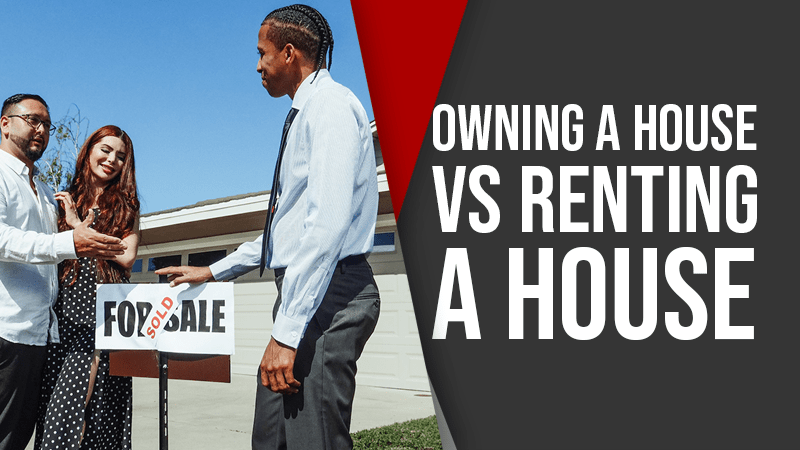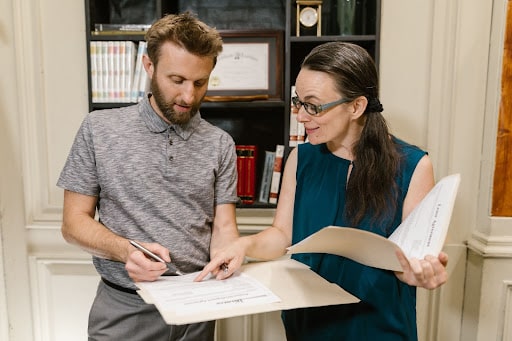5 Important Tips For Choosing Between Buying and Renting A House
Share this content :

With inflation and its economic impact, finding a place to call home is becoming complicated. Shortages of available houses and the rise in prices have caused a hike in mortgage rates. Higher costs will be a big problem for those looking for a new place to live. Knowing how to afford a house will make a difference in your financial plans.
Luckily, I happen to know quite a bit about real estate; in fact, I made a successful living through it. Years of providing financial advice to new and long-time homeowners have helped me understand how I can deal with the rising costs. I think the best strategy is to know the difference between renting and owning a house. Reviewing each option can save you the trouble of choosing the right direction. Here’s what you need to know about the benefits of owning a house vs renting.
Defining Rent
Let me clarify what renting a house means. Simply put, renting means you’d be occupying a space that isn’t your own, such as a lot, a room, or a house. Because you aren’t the owner, you’ll be signing a formal agreement, also known as a “lease,” with the investor of the property.
This lease determines what you can or can’t do and how much you’ll pay for your stay. Other things that a lease can include are the amenities you’ll cover, like electricity and water, the due date of each payment; the amount of rent required per month or year; and the contract’s expiration date.

Benefits of Rent
Less Responsibility
One of the most significant advantages of renting a house is that you aren’t in charge of its condition. While you should take care of it, you aren’t financially responsible for potential repairs or maintenance. That means fewer expenses to concern you. For example, if the kitchen sink breaks, your only obligation is to inform the owner. It will likely be their responsibility to cover damages and repairs.
Flexibility in Choices
Renting a house offers you multiple options of where you want to live. You can consider the area of the place, your budget, and the house size in one go. Such a range is viable during inflation because rent can be very affordable, depending on where you live. Furthermore, you can stay inside or leave for several weeks without issue. After all, the owner handles the property, and you won’t need to be there all the time to watch over it.
Faster Processing
Owners and landlords have to invest in mortgages, insurance plans, and other financial concerns of the house. Thankfully, that’s not going to be your issue as a tenant. Your primary financial transaction happens between you and the investor. You’ll be fine if you follow their rules and pay on time. You can even focus on using your remaining income for other things, like insurance and investment funds.
Drawbacks of Rent
Eviction and Rental Rights
The property owner is the authority of the house. They have the right to evict you from the premises with a 30-day notice. Even if you haven’t done anything wrong, that choice is at their discretion. For example, they might be looking to acquire higher-paying clients. They can also increase your rent to fit the price hike, which can sometimes be challenging.
Equity
Given enough time and attention, a house will grow in value. Its market price can increase and attract potential buyers or higher-earning investors. The problem is that this benefits the owner. As I said before, you’re not in charge of the house. In other words, you’ll not enjoy the benefits as the owner gets to build more cash value and potential profit.
Limited Freedom
Remember that you are not the owner of the house. In other words, you can’t renovate or make design changes independently. Any plans you have will have to go to the landlord, and it’s their right to accept or reject your idea. While you can bring your stuff, you must keep everything as it was. More importantly, if you break something, you will likely be charged.
Defining Ownership
As self-explanatory as the term “ownership” is, it’s still crucial that you understand how it works. When you own a house, you’re paying for complete responsibility. It’s like having a pet; you’ll handle everything it needs to thrive. Being an owner means you will cover its repairs, renovations, design options, and construction.
Whether you choose to build it from scratch or get a pre-built house, you’re likely to pay a mortgage for it. Mortgages are loans that banks and other institutions provide so that you can own the residence immediately. These loans will help you pay for it in full, although you’ll have to pay the lender back over time. How you choose to do so depends on the contract. For example, some people can pay off as early as 20 years, while others could take up to 40 years or more.

Benefits of Ownership
A Stable Place
While renting, owning a house means staying there for as long as you want. This option is great for pet lovers and new families. You get privacy in your place to rest and relax.
Freedom of Control
The phrase above might look confusing. Freedom of control means you can shape the house however you please. You can change the color scheme, furniture placement, and room design.
High-Value Investment
If you spend enough time and care on your house, you’ll raise its value in the market. In other words, your current home can become a worthwhile investment that you can eventually sell. It’s a common tactic in real estate. Making your house worth the cost will require careful inspection and maintenance.
Drawbacks of Ownership
Added Financial Responsibilities
Owning a house also means covering a lot of financial costs. Beyond your living expenses, you now have to consider mortgage fees and amenities. In addition, you’re looking at extra charges for renovations, insurance plans, and unexpected repairs. If you want to own a house, be ready to adjust your savings. Otherwise, you might use up your cash to pay for your place.
Fluid Value
As I previously mentioned, homeowners often use their house as an investment to sell off later. However, I will not guarantee that you’ll immediately earn a profit. The value of your property can rise and fall over time. If you’re not careful, you might be selling your house for exactly how much you paid for it. Furthermore, selling a house isn’t a simple transaction. It can take a while to process, especially if the buyer wants to inspect the property beforehand.
Lack of Movement
For new families and homebodies, owning a house is an ideal choice. For adventurous spirits and frequent travelers, however, it might not be worth it for adventurous souls and regular travelers. Having a house means less mobility in where you go and how far you can be away.
If you are fond of your freedom, tying yourself to one place might be a bad investment.
What to Consider When Owning A House vs Renting
Now that I’ve shown the significant differences between renting and owning a house, it’s time to consider which option best fits you. Remember that either option is a big step because it can seriously affect your expenses in the future. Here are five ways to help you choose between owning a house vs renting.
1. Examine Your Budget
Knowing how much you can afford is vital in your decision between owning a house vs renting. In general, renting a house will always be cheaper and provides less responsibility. You can even compare tenant insurance plans to homeowner plans, and you’ll see a significant difference. You can always search the market for good deals for those who want to own a house. Someone in your state or municipality is probably selling their place for much less than you expected. Check it out to determine if it’s worth paying.
2. Determine Your Duration of Stay
Rent is ideal for those who like to move around and travel. Ownership is better for people who plan to anchor themselves to one place for several years. The point is that knowing how long you plan to stay is vital to making a choice. Consider both your lifestyle and your career goals when doing so. For example, fresh graduates may consider rent because they plan to go to several seminars and internship programs. Families, however, will focus more on a stable house to raise their children while working comfortably. So, when you choose between owning a house vs renting, you should consider how long and how often you’ll be at home.
3. Review Available Benefits
Both rent and ownership offer advantages for you to consider. Renting is more affordable and has fewer responsibilities for the house and its condition. Ownership provides tax benefits and freedom to change or upgrade your residence. When you examine these options, I recommend looking at what appeals to you more.

4. Review Potential Risk
Like the previous method, knowing the risks is as helpful as knowing the advantages. Rental fees can rise without your knowledge, and you can be evicted upon the landlord’s decision. Meanwhile, ownership costs more overall and can be a tiring responsibility. When choosing between owning a house vs renting, both come with specific needs and issues. Before you make a choice, always consider what you’re willing to put up with. Otherwise, you risk stressing yourself out and regretting your decisions.
5. Consult Professionals
This last method is always a safe bet, regardless of which choice you make between owning a house vs renting. A financial expert can give you insight into which choice fits your lifestyle. These analysts review your career goals, current finances, and personality. While it’s up to you to follow their advice, I suggest you always seek an opinion. It doesn’t even need to be a trained expert. For example, you can ask your parents or close friends about what they’ve gone through. Their experience and viewpoint can help you choose between renting a place and buying it yourself.
In Summary
With prices rising from inflation, people will need help choosing betweenowning a house vs renting. Knowing the difference between each can change how much people spend and invest. Generally, rent is much more affordable and allows more freedom to move and budget. On the other hand, ownership allows a long-term investment and a stable place to live. Given these options, I recommend reviewing the benefits of each and examining your wallet. I also suggest checking in with a professional or homeowner to see what they’d recommend. By following these tips, you can protect your money and give yourself a nice place you can enjoy living in.
Share this content :
Copyright © 2023 Munif Ali. All rights reserved.

